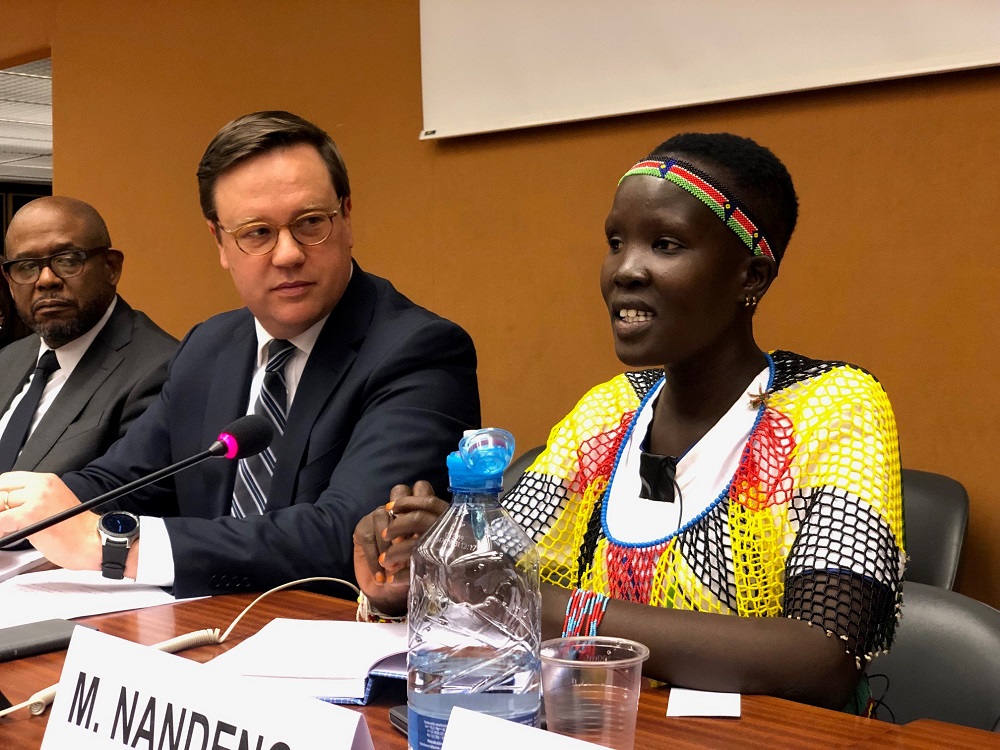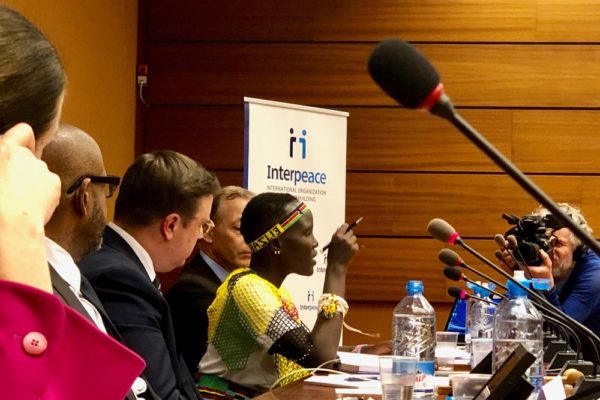Women's needs and interests at the forefront of peacebuilding

Interpeace is honoured to share a high-profile platform today – International Women’s Day 2019 – with a remarkable young woman and peacebuilder, Magdalena Nandege. Our event focusses on peacebuilding and human rights in South Sudan; our venue and audience is the Human Rights Council at the United Nations in Geneva; our practical call for meaningful action beyond words is that young women and men must be able to play a full role in building peace and development.
Magdalena is 25 years old and is both a midwife and a peacebuilder with the Whitaker Peace and Development Initiative (WPDI), promoting women’s empowerment and peace by passing on her skills and being an inspiration to others. She exemplifies how all levels of society – from local communities to the decision-making halls of the UN – can benefit practically from having women’s experiences, knowledge and passion at the heart of peacebuilding.

Interpeace’s recent work in Burundi has reinforced the importance and relevance of viewing peacebuilding through gender lenses. It has questioned gender stereotypes and ensured that our future peacebuilding is sensitive to vital gender nuances that take into account other aspects of women's identities. That said, more needs to be done worldwide: all too often efforts are made to ensure the participation and representation of women in peacebuilding process design, and yet women’s particular needs and interests too rarely then emerge at the forefront of peacebuilding delivery.
Everyone has a role to play to ensure that there is genuinely a better balance in the roles, responsibilities and benefits for women through peacebuilding – so that peacebuilding itself is better. #BalanceforBetter. Interpeace is playing its part: we remain resolutely committed and are practically implementing gender sensitive programming at all levels: from project design to practical implementation, from our work in the field to our work in the corridors of international rule setting and policy making. We are also committed to continuing our own institutional journey to achieve staff gender parity. We celebrate the progress achieved even as we recognise the need to do much more, and we celebrate especially the role and potential of young women worldwide.
Scott M. Weber
President of Interpeace and International Gender Champion
